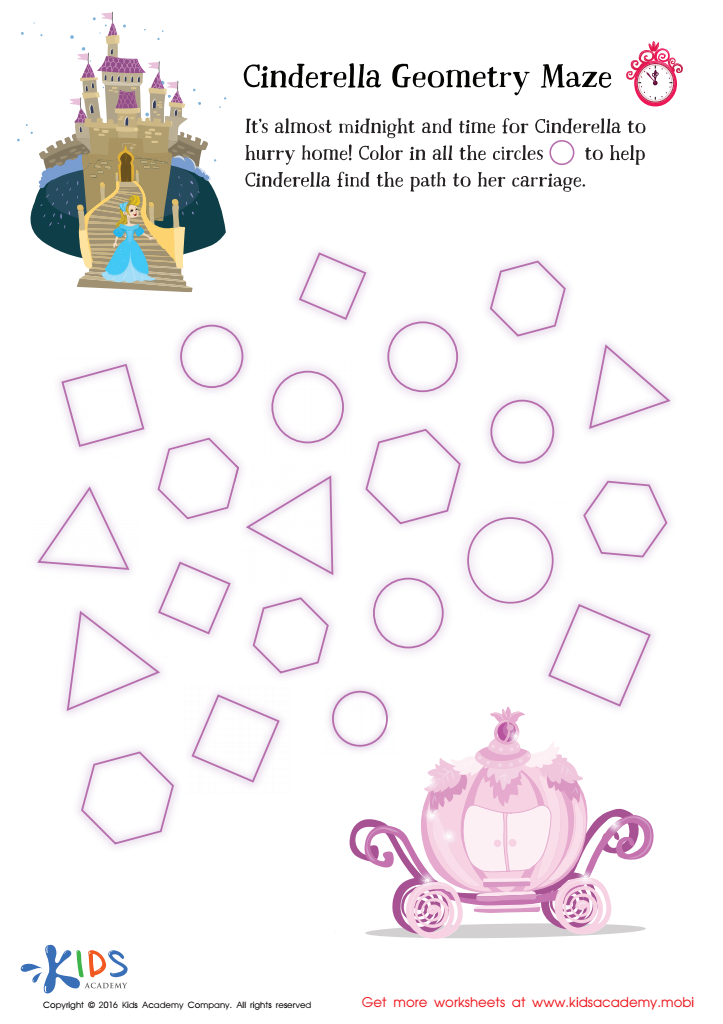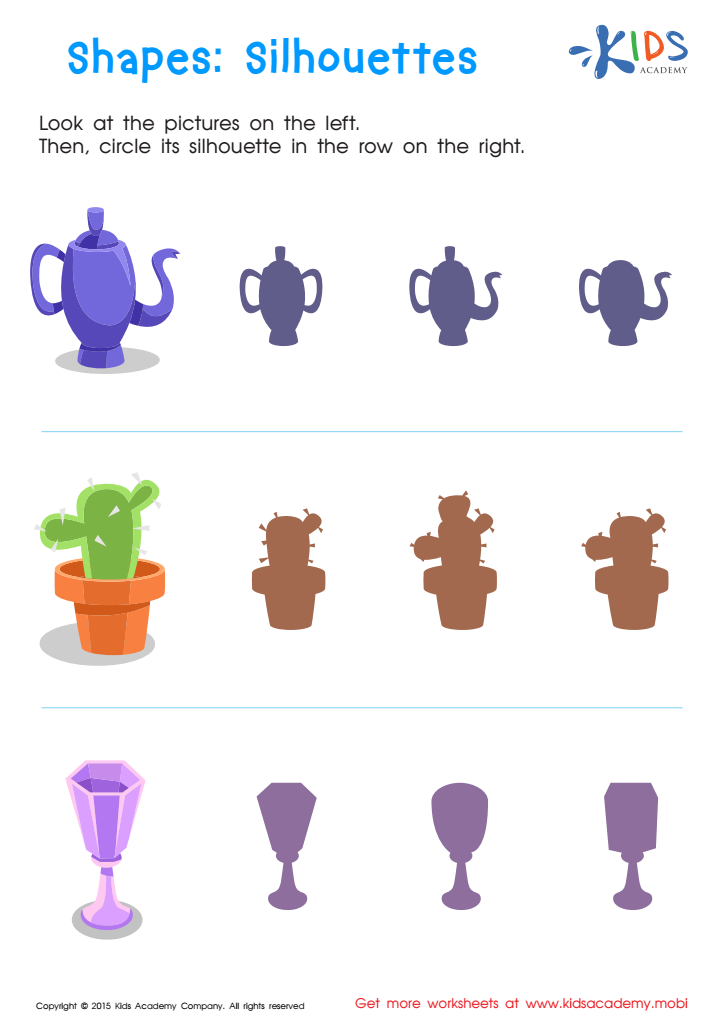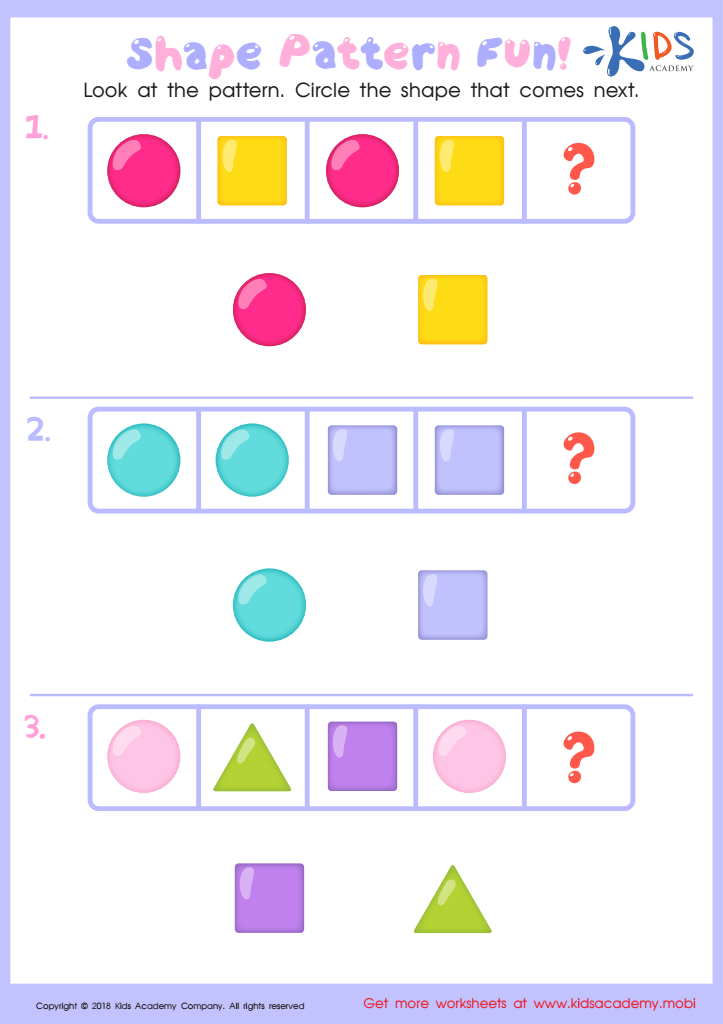Problem-Solving Skills Normal Matching Worksheets for Ages 3-7
5 filtered results
-
From - To
Enhance your child's problem-solving skills with our engaging Normal Matching Worksheets designed specifically for ages 3-7. These fun and interactive worksheets encourage critical thinking and cognitive development through exciting matching activities. Children will learn to identify patterns, make connections, and solve simple problems while improving their attention to detail and observation skills. Perfect for home or classroom learning, these worksheets cater to young learners’ varying skill levels, making them an essential tool for early education. Help your child build a strong foundation in problem-solving while they enjoy hands-on learning. Explore our printable resources today and watch their confidence grow!


Make the Same Pattern Worksheet


Cinderella Geometry Maze Worksheet


Logic Game Sorting Worksheet


Silhouettes – Shapes Worksheet


Shape Pattern Fun Worksheet
Problem-solving skills are essential for children aged 3-7 as they lay the foundation for critical thinking, decision-making, and independence. During this developmental stage, children are naturally curious, and fostering their ability to solve problems enhances their cognitive growth. When children engage in problem-solving, they learn to analyze situations, think creatively, and approach challenges with confidence.
Normal Matching, a formative skill in this process, helps children understand relationships between objects and ideas. For instance, when they match shapes, colors, or sizes, they are not just recognizing patterns; they are exercising their logical reasoning and cognitive capabilities. Teachers and parents play a vital role by providing activities that encourage matching and problem-solving, whether through games, puzzles, or everyday tasks.
Moreover, developing these skills nurtures resilience. Children learn that failure is a part of the process and that persistence and exploration are key to finding solutions. As they practice problem-solving, they build social skills, such as collaboration and communication, which enhance peer interactions. Ultimately, supporting problem-solving skills in early childhood means equipping children with the tools to navigate their world effectively, manage conflicts, and thrive academically and socially throughout their lives.

 Assign to My Students
Assign to My Students
















